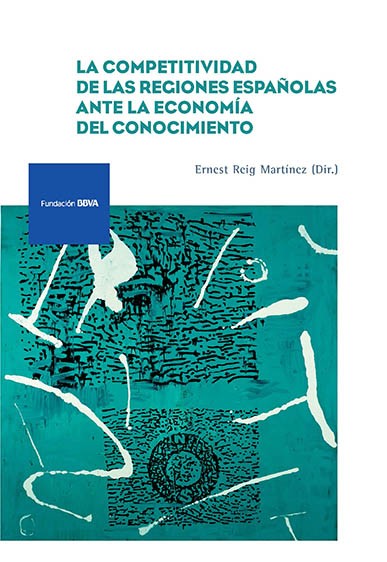
PublicationMonographs
La competitividad de las regiones españolas ante la economía del conocimiento
Spanish society must aspire to do more than return to the pre-crisis status quo, with a low-productivity growth model characterized by a deficit of ICT-related capital and a subpar effort in R&D. The consensus now is that aspects of this model must change in order to place it on a sounder foundation – that of the knowledge economy – capable of delivering productivity gains hand in hand with higher standards of social welfare.
The aim of this book is to assess how well Spain’s regions are prepared to harness the opportunities yielded by the knowledge economy, by analyzing to what extent their economic position hinges on the availability and utilization of knowledge-based assets, like a highly-skilled workforce and certain categories of productive capital. Some activities are particularly knowledge intensive, and it is essential to determine their weight in each region’s economic fabric, since this will in turn influence their capacity for growth.
The authors examine regional performance during the latest expansion and recession phases, explain the methodology used to determine the contribution of knowledge-based assets to economic growth, and analyze two fundamental pillars of the knowledge economy: human capital and ICTs. They also look at the environmental factors that help explain the differing penetration of the knowledge economy in the productive fabric of Spanish regions, and develop a set of indicators to map the relative position of each.
Experts in regional policies will find much useful material in this book, as will the actors handling their implementation at different levels of government, and indeed a wider public with an interest in the subject matter.
